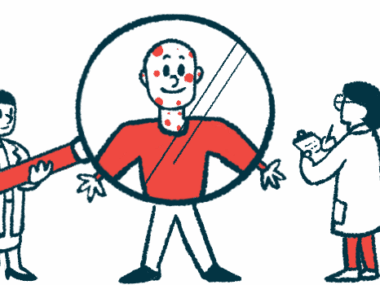My favorite tips to make life with aHUS a little easier
A heated blanket and hot beverage go a long way in providing some relief
Written by |

Being chronically ill and disabled long before I turned 40 is not how I expected my life to unfold. Rare diseases, permanent organ damage, and a multitude of comorbidities have forever changed my future. While it’s no secret that there are negative aspects to living with a rare, chronic illness, almost five years into this “new normal,” I’ve discovered some tips and life hacks that make this journey a little easier.
In September 2020, I went to the emergency room feeling unwell. I initially thought I had COVID-19 or some temporary illness and was actually pleased at the prospect of getting a doctor’s note to take a few days off work. I’d been exhausted and run down for weeks, so a forced break seemed ideal. Little did I know that this pause would become permanent. I was in multiorgan failure and so close to death that many members of my medical team didn’t think I’d survive the week.
I spent nearly two months in the intensive care unit, undergoing 18 blood transfusions, dialysis, plasmapheresis, immunizations, a liver bleed, up to six blood draws per day, a kidney biopsy, and Soliris (eculizumab) infusions, which had side effects. Ultimately, I was diagnosed with an ultrarare disease called atypical hemolytic uremic syndrome (aHUS). I also have immune thrombocytopenia, thrombotic thrombocytopenic purpura, stage 4 chronic kidney disease, lupus, and Ehlers-Danlos syndrome, and I’ll need monoclonal antibody infusions for the rest of my life.
Given all of this, the following are some of my favorite things that help to make life easier.
I’m always cold now, which often makes people laugh. I can be sitting outdoors in a sweatshirt in 100-degree heat, knowing that once I go back inside, I’ll be freezing from the air conditioning. I’m anemic due to aHUS, resulting in lower-than-normal hemoglobin levels that cause body chills and physical pain.
To combat this, my fiancé got me a heated blanket that’s been a game changer. Instead of trying to curl up with a small heating pad, I now have a large blanket that gets quite hot, which not only keeps me warm but also alleviates much of my chronic pain. This is easily one of my most cherished items.
Next, I love my countertop kettle and hot drinks. Being cold in Florida might sound strange, but hot drinks provide me quick comfort. I rotate between hot apple cider, chamomile tea, and hot chocolate. Not only do warm drinks help me feel cozy, but they also aid in digestion, which can be an issue for me due to the medications I take. My treatments can wreak havoc on my stomach.
Therefore, probiotics have become a daily staple. I’d also been steadily gaining weight since 2020, so I tried a generic multi-enzyme probiotic from Walmart. To my surprise, I lost 30 pounds, and my weight has remained stable ever since.
Two more things I love are wigs and eyebrow pencils. Soliris is tough on my body, and one of the most challenging side effects has been hair loss. I’ve lost my eyelashes and eyebrows, and the little hair I have left on my head continues to fall out. I now wear wigs full time and draw my eyebrows daily. At first, I found my situation embarrassing, but I’ve come to realize that, with wigs, I can wear whatever hairstyle I want with minimal effort.
Life is what we make of it. It’s easy to become bogged down emotionally while having a chronic illness but it’s also possible to see little rays of sunshine peeking through the clouds. Learning a few simple tricks can make life a little easier.
Note: aHUS News is strictly a news and information website about the disease. It does not provide medical advice, diagnosis, or treatment. This content is not intended to be a substitute for professional medical advice, diagnosis, or treatment. Always seek the advice of your physician or other qualified health provider with any questions you may have regarding a medical condition. Never disregard professional medical advice or delay in seeking it because of something you have read on this website. The opinions expressed in this column are not those of aHUS News or its parent company, Bionews, and are intended to spark discussion about issues pertaining to aHUS.






Leave a comment
Fill in the required fields to post. Your email address will not be published.